De Origine Successibusque Slavorum (On the Origin and Glory of the Slavs) was published in 1595 in Venice.
A native of Hvar, Dominican Vinko Pribojević, humanist and historian, was the first to express the idea of unity of all Slavs in his work “De origine successibusque Slavorum,” Venice 1532. The work was later translated into Italian and published in Venice in 1595. The first part of Pribojević’s work is devoted to the origin and fame of the Slavs, while the second part gives a short geographic description and history of Dalmatia. The third part is devoted to his native island of Hvar. He delineates its glorious past, its economic and cultural importance and the scientific and military contributions of his countrymen. Pribojević’s ideas, although influenced by Polish historiography, which believed that the cradle of Slavs was in Illyricum, are important because he was the first among the South Slavs who expressed the idea about the great Slavic community of nations. He is considered to be a forerunner of the pan-Slavic idea and the later Illyrian Movement. His work was a source for the history written later by Mavro Orbini.
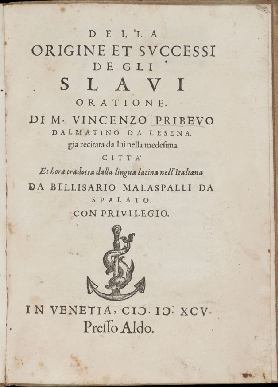
The following text I am going to post is the general view of modern historians in regards to Vinko Pribojević and what they deem as "Pan-Slavism". I post this because it makes mention of Vinko's view of the Ancient Macedonians, Illyrians, and Thracians as being a people of the same nation who speak the same language. It also makes mention of an interesting text called "The Donation of the Slavs by Alexander the Great".

page 223
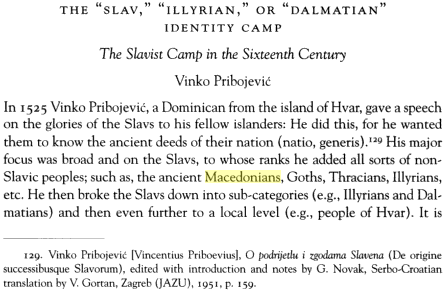

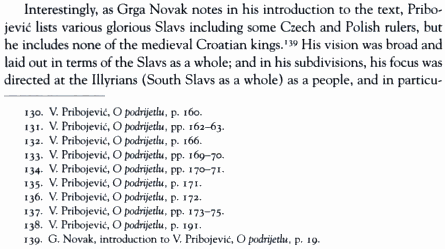
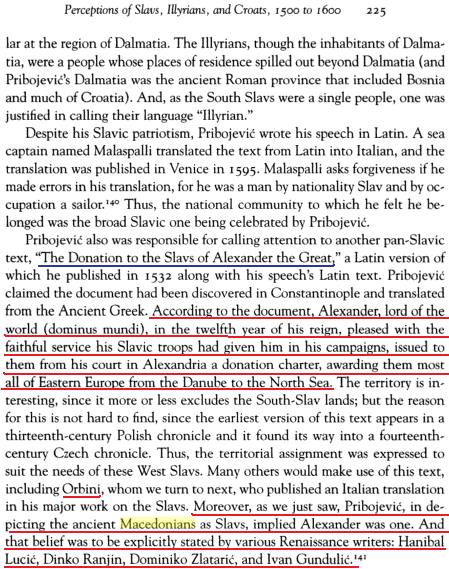
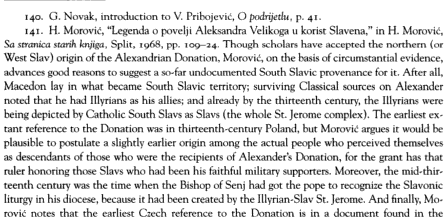
What are your thoughts?
A native of Hvar, Dominican Vinko Pribojević, humanist and historian, was the first to express the idea of unity of all Slavs in his work “De origine successibusque Slavorum,” Venice 1532. The work was later translated into Italian and published in Venice in 1595. The first part of Pribojević’s work is devoted to the origin and fame of the Slavs, while the second part gives a short geographic description and history of Dalmatia. The third part is devoted to his native island of Hvar. He delineates its glorious past, its economic and cultural importance and the scientific and military contributions of his countrymen. Pribojević’s ideas, although influenced by Polish historiography, which believed that the cradle of Slavs was in Illyricum, are important because he was the first among the South Slavs who expressed the idea about the great Slavic community of nations. He is considered to be a forerunner of the pan-Slavic idea and the later Illyrian Movement. His work was a source for the history written later by Mavro Orbini.

The following text I am going to post is the general view of modern historians in regards to Vinko Pribojević and what they deem as "Pan-Slavism". I post this because it makes mention of Vinko's view of the Ancient Macedonians, Illyrians, and Thracians as being a people of the same nation who speak the same language. It also makes mention of an interesting text called "The Donation of the Slavs by Alexander the Great".

page 223





What are your thoughts?



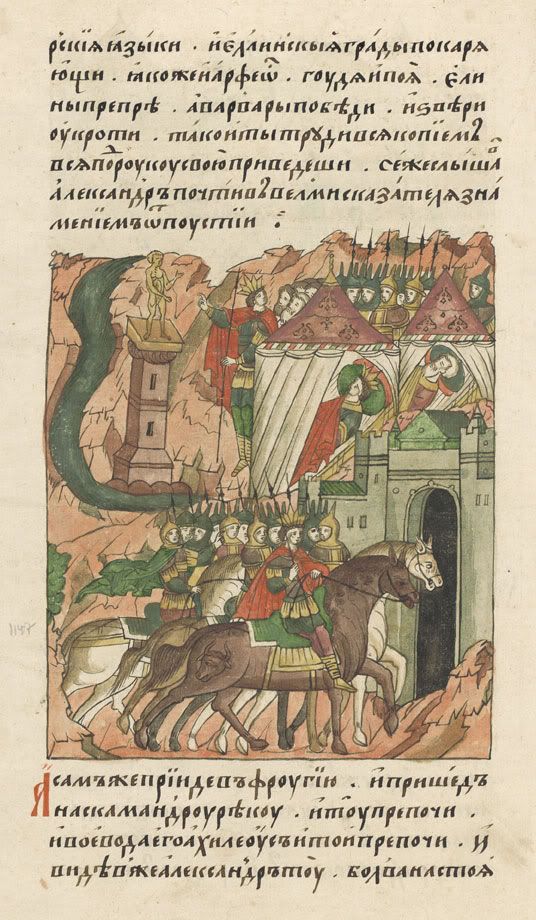
Comment